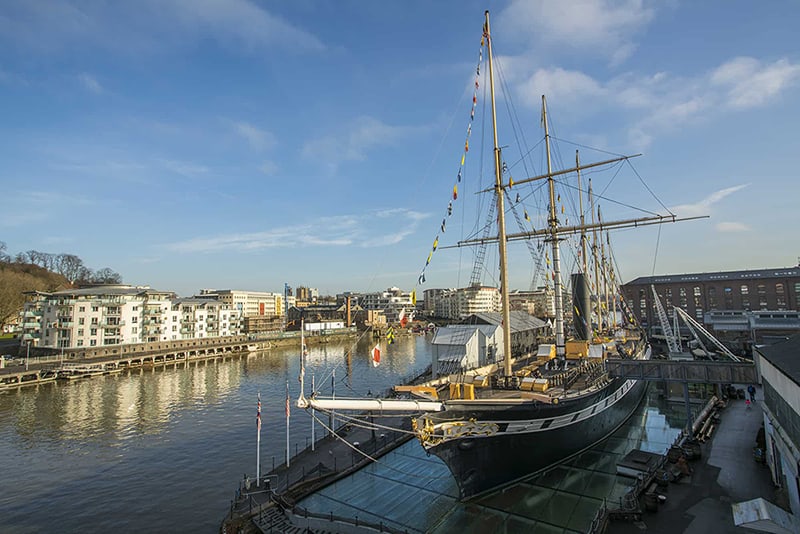However thankfully this level of violence did not take place during the ceremonies recorded aboard the SS Great Britain. Some passengers recount taunts and torments being metered out to a few unlucky souls but for the majority this ceremony was used as a form of passenger entertainment until the tradition ceased to be performed on board altogether. The reasons why the ceremony stopped are unknown but once Captain Gray took charge of the Great Britain in 1854 mentions of a ceremony being performed start to fade from passenger diaries.
But what did a ‘Crossing the Line’ ceremony on the SS Great Britain entail?
It would begin with a letter, delivered by King Neptune’s loyal assistant Davy Jones, these characters being played by senior crew members who had crossed the equator on previous voyages. The letter would announce to all those onboard that the ship was approaching the equatorial line and that the King and his court would be paying them a visit to decide if they were worthy enough to cross.
Shellbacks, a term used for those sailors who had already been initiated, would begin the preparations for King Neptune’s imminent arrival. The passengers travelling on board the Great Britain had the opportunity to opt-out of King Neptune’s trials by subscribing or buying their way out of the beastly festivities to come. Annie Henning wrote in her diary that:
“All the gentlemen and ladies who had not crossed the line had subscribed beforehand, the former to avoid being shaved the latter, being kissed (the penalty otherwise exacted in both cases)”.
This did not always mean the passengers were left in peace. Edward Towle, who travelled on the Great Britain on her first passage to Australia records the ordeal of a very unlucky fellow:
“Mr Holt, the son of a large Manchester carrier was dragged naked from his berth and in spite of his protestations never having being ill in his life was well soused the shaving being now deemed superfluous from excess of subjects, numbers the same fate.”
The punishments dealt by King Neptune and his shellbacks ranged from a dousing with water to being shaved with a razor; a disgusting concoction was used for a shaving foam made from oatmeal, water and tar.
Once all the new comers, or “Pollywogs” had been “baptised”, a casket or barrel of tar was set alight and cast over board to signal Neptune’s departure back down to the murky depths.
Although ‘Crossing the Line’ could be brutal it played an important part aboard any ship that had to cross the Equator, and for most of the passengers on board the SS Great Britain it was a welcome distraction from their tough 60-day voyage. ‘Crossing the Line’ meant they were closer than ever to starting their new lives in the gold fields of Australia.
Author: Natalie Fey, Interpretation Assistant



